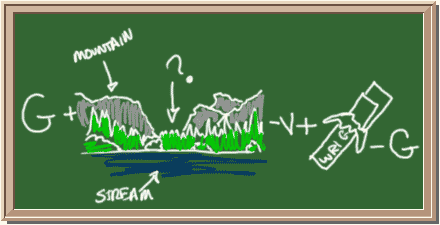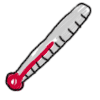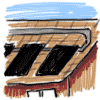
GAL-LI-UM
 Gallium is one of those elements that is used in industry every day. You have probably never even heard of the element. A scientist named Lecoq de Boisbaudran discovered it in 1875. It was unknown before that.
Gallium is one of those elements that is used in industry every day. You have probably never even heard of the element. A scientist named Lecoq de Boisbaudran discovered it in 1875. It was unknown before that.
The interesting thing about gallium is that scientists knew the element existed, even though it had never been discovered. How did they know? When Mendeleev developed the periodic table, there were empty spaces in the grid. Scientists knew that elements existed that would fit into those spaces and they would be discovered one day. Gallium was one of those elements.
Think about it this way. If you knew about the number four and the number six, but no one showed you the number five, you would expect that one day someone would teach you about that in-between number called five. Gallium was one of those in-between elements.
Where can you find gallium?

|
Thermometers The thermometers made with gallium aren't in your bathroom. Researchers use gallium thermometers to measure very high temperature environments. |

|
Mirrors You can actually paint gallium on glass to form mirrors. Pretty cool. |

|
Solar Devices Researchers use gallium arsenide to convert light to energy. This could lead to uses in solar cells and even generating power in space. |

|
Neutrino Detectors When you want to study space, many astronomers look to study the levels of neutrinos that hit Earth each day. Neutrinos are closely related to electrons and we detect ones emitted by the Sun. |




